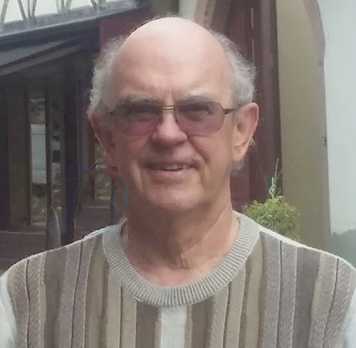Prelog Lecture 2017
Prof. Stephen Kent

Professor Stephen B. H. Kent, recipient of the 2017 Prelog Medal, was born in New Zealand in 1945. After earning a B.Sc. degree in Biochemistry from Victoria University of Wellington in 1968, and a M.Sc. degree from Massey University in 1970, he transferred to the University of California, Berkeley for doctoral studies, receiving a Ph.D. in Organic Chemistry in 1975. Following postdoctoral work with Bruce Merrifield at the Rockefeller University, Professor Kent held a succession of research or faculty appointments at Rockefeller University, the California Institute of Technology, Bond University, and The Scripps Research Institute. From 1997 to 2000, he was President and Chief Technology Officer at Gryphon Sciences. In 2001, he joined the faculty of the University of Chicago, where he is currently Professor of Chemistry, Biochemistry and Molecular Biology.
Over the past four decades, Stephen Kent has profoundly shaped the field of peptide and protein chemistry. His many and diverse contributions have altered the way scientists tackle the production of these biomacromolecules. Preparation of the 99-amino acid long HIV protease and its enantiomer using optimized protocols for solid-phase peptide synthesis, to cite only one example, was a signal achievement. This work, together with follow-up studies, convincingly demonstrated that total chemical synthesis is a viable and practical alternative to protein biosynthesis, capable of providing large quantities of material for detailed mechanistic and structural studies.
Methods for coupling unprotected peptide fragments have been even more influential. In particular, the Kent “native chemical ligation” has made much larger proteins accessible to direct chemical investigation via convergent, chemoselective assembly of smaller segments that are easy to prepare and purify. Since its introduction in 1994, native chemical ligation has become a robust, reliable and widely used technology. Some of its most exciting applications include selective labeling of individual protein domains for spectroscopic studies and incorporation of unnatural amino acids or novel backbone modifications into the target sequence. Efficient total chemical synthesis of human insulin, fully active glycoprotein mimetics of erythropoietin, and many mirror image protein molecules highlight the practical utility of such approaches.
As these examples attest, Stephen Kent has had a gift, throughout his career, for pioneering new chemistries, and for utilizing them to reveal the molecular basis of protein function. Not surprisingly, he is much-recognized for exceptional achievement. Among other major distinctions, he has received the Hirschmann Award in Peptide Chemistry (1994), the E.T. Kaiser Award (2002), the Vincent duVigneaud Award (2004), the R. Bruce Merrifield Award (2009), Rudinger Medal (2010), the Akabori Medal (2010), the Alfred Bader Award in Bioorganic Chemistry (2011), and the Leach Medal (2013). Professor Kent has been named a Fellow of the Royal Society of Chemistry and is an Honorary Member of the Israel Chemical Society.
The Laboratorium für Organische Chemie is honored to add his name to the roster of distinguished Prelog medalists.